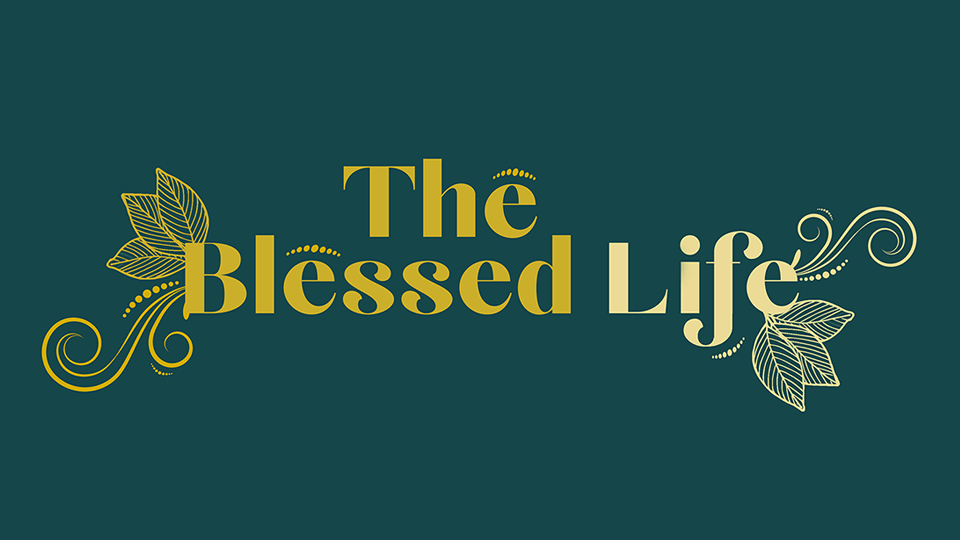Lenten Devotional – Tue, Mar 9: THIRSTY
Tue, Mar 9: THIRSTY
When Matthew addresses hunger and thirst, we can consider them as intertwined appetites of body, mind, and spirit. Our thirst begins deep inside, born among the gaps and absences, hurts and shortcomings. Something is missing. We feel empty — or perhaps incomplete — and long to be filled.
Spiritually, we’re thirsting for a more life-giving and essential connection, healing, and relationship. It often arises as a sense of longing, questioning, or restlessness, to which Christ speaks in this Beatitude. It also echoes the long narrative thread of water in Biblical stories.
Of course, Christ is called the Water of Life. Truly, the sacred element of water, especially in desert settings, is not just symbolic: it is crucial to thriving.
We can trace the stories of water from Hebrew scriptures to the Gospels and letters of Paul. It begins with the creation story of the waters covering the face of the earth, arises in the the great flood and covenant with Noah, and flows in the river that carried baby Moses away from Miriam to the Egyptian princess that raised him, rolls back as the famed parting of the Red Sea for the fleeing Israelites, the springs forth as the fountain of water when Moses struck the rock with his staff. It returns in stories of the wells and rivers and oases that nourished flocks and shepherds and whole tribes. It is the backdrop for the tale of Jonah and the fish and a gathering place in distance lands around which the exiled Israelites gathered and wept. Among the stories of Jesus are those that include being baptized by John in the Jordan, asking for water from the woman at the well, transforming water into wine at the wedding, calming stormy waters, walking on the water, washing the feet of his followers, and weeping as he died on the cross. Then again, water becomes crucial in the apostolic tales of baptizing new believers such as Lydia or traveling across the seas to new cities and faith communities.
How do we trace the story of thirst, and life-giving responses we have experienced, in our own lives?
Always, thirst suggests a vital need within us: in this case it is for more than the survival of our bodies. Jacques Phillipe writes, ‘The fourth Beatitude points to a question; what is my deepest desire? Hunger and thirst are images for what is most essential … What desire is the principle of unity in my life?’
Sometimes, mistakenly, we reach for easy comforts that sate and distract. Ones that cannot meet our deepest need. As humans, we often take shortcuts to satisfy underlying emotional, psychological, spiritual needs and thirsts.
In part, this Beatitude addresses the honesty of accounting for the ways we are harmful to ourselves and others as we search for Godself. We make mistakes by quenching lesser and unhealthy cravings along the way. They get between us and a healthy relationship with ourselves, other people, and Godself.
In twelve-step models, this parallels taking inventory of our moral issues. Christ blesses those who acknowledge their hungers and thirsts — their addictions and desires and habits — and then re-direct themselves, striving for satisfaction in healthy and holy ways.
These forms of inventory, and seeking right relationship, can also occur at societal levels. Certainly the focus on relationship suggests community as part of the response as well as the source of the trouble. Jacques Phillipe observes, ‘Hunger and thirst for justice, desire for the Kingdom, far from being passive waiting, are actively expressed in announcing the good news of the gospel and the work of transforming society to which each of us is called.’
Our desires may be met and filled by a focused connection to Godself and a supportive community. Yet simply to realize that we have such a need is an important step along the Way of Christ. Revealing these vulnerable, imperfect aspects of our being and our society can lead to healing: reinforcing personal and communal practices that support wellbeing.
This process doesn’t promise to be easy. Yet the Beatitude assures us that we will be filled. All the gaps and fissures, the broken places, the emptiness and isolation, will be topped off. God’s abundance overflows. We are renewed through relationships with creation, other people, and with Godself. — Rev Gail
Animals praise a good day, a good hunt. They praise rain if they’re thirsty. That’s prayer. They don’t live an unconscious life, they simply have no language to talk about these things. But they are grateful for the good things that come along. — Mary Oliver
When you’re thirsty and it seems that you could drink the entire ocean, that’s faith; when you start to drink and finish only a glass or two, that’s science. — Anton Chekhov
It’s a great responsibility before God, the judge who guides us, who draws us to truth and good, and in this sense the church must unmask evil, rendering present the goodness of God, rendering present his truth, the truly infinite for which we are thirsty. — Pope Benedict XVI
Challenge or Question: In what ways do you feel empty? When does this emptiness seem healthy and when is it a problem? What fills the emptiness or ‘lack’ for you?


